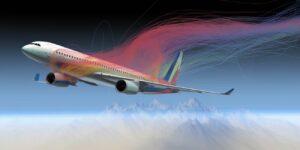Typically, entry-level positions in this field may offer a starting salary of $30,000 to $40,000 per year, depending on the geographical area. As fuelers gain experience and expertise, their earning potential tends to increase. Experienced aircraft fuelers can command higher salaries, often reaching $50,000 to $60,000 per year or more.
Location plays a crucial role in determining the income of aircraft fuelers. Airports in major metropolitan areas may offer higher wages to compensate for the higher cost of living. In contrast, smaller airports in rural locations might have lower salary ranges. It’s essential for individuals contemplating this career to research the pay scales in their desired work areas.
Moreover, the employer also influences the earnings of aircraft fuelers. Large airlines and major airports generally have the financial capacity to provide competitive salaries and additional benefits. On the other hand, smaller regional airports or private aviation companies may offer slightly lower compensation packages.
It’s important to note that the aviation industry often requires fuelers to work irregular hours, including evenings, weekends, and holidays. Some positions may offer additional compensation or bonuses for working during less desirable hours. This factor should be considered when evaluating the overall income potential in this field.
For those seeking a detailed breakdown of compensation, a table outlining the average salaries for aircraft fuelers based on experience and location is provided below:
| Experience Level | Location | Average Annual Salary |
|---|---|---|
| Entry Level | Small Town Airport | $30,000 – $40,000 |
| Experienced | Major Metropolitan Area | $50,000 – $60,000+ |
| Seasoned Veteran | International Airport | $70,000+ |
Keep in mind that these figures are general estimates, and actual salaries may vary. Factors such as overtime opportunities, benefits, and industry trends can also impact the overall compensation package for aircraft fuelers.
Details about aircraft fuelers salary and pay
Aircraft fuelers play a crucial role in ensuring that planes are ready for takeoff by handling the fueling process. When it comes to compensation, aircraft fuelers’ salaries vary based on factors such as experience, location, and the employer. Understanding the intricacies of their pay structure can provide insight into the financial aspects of this essential aviation role.
The average salary for aircraft fuelers in the United States hovers around $35,000 to $45,000 per year, but this figure can fluctuate. Those with more experience or employed at major airports may command higher salaries. Additionally, geographical location significantly influences pay rates. Fuelers working in metropolitan areas or regions with a high cost of living may receive higher compensation compared to their counterparts in less expensive locales.
Experience plays a pivotal role in determining an aircraft fueler’s salary. Entry-level positions typically offer salaries on the lower end of the scale, with the opportunity for steady increases as individuals gain more hands-on experience in fueling various aircraft types. Seasoned professionals with several years in the industry may find themselves eligible for supervisory roles, which often come with a salary boost.
Employers also contribute to the variance in aircraft fueler salaries. Major airlines or aviation companies may offer competitive compensation packages, including benefits such as healthcare, retirement plans, and employee discounts. In contrast, smaller regional airports or private aviation facilities may provide lower base salaries but could compensate with other perks or a more relaxed work environment.
It’s essential to note that many aircraft fuelers work on an hourly basis. This hourly rate can range from $15 to $25 per hour for entry-level positions, with the potential for overtime pay. The hourly pay structure allows for flexibility, especially considering the irregular hours that come with the aviation industry’s 24/7 nature.
For a clearer view, let’s break down the salary information into a table:
| Experience Level | Salary Range |
|---|---|
| Entry-Level | $35,000 – $40,000 per year |
| Experienced | $40,000 – $50,000 per year |
| Supervisory Roles | $50,000 and above per year |
While financial compensation is a crucial aspect, aircraft fuelers may find job satisfaction in their contribution to the aviation industry’s smooth operation. As they navigate the intricacies of fueling various aircraft and adapting to the dynamic nature of the job, their salaries reflect the multifaceted factors that come into play.
What aircraft fuelers actually do: learn the facts
When it comes to the dynamic world of aviation, aircraft fuelers play a crucial role in ensuring the smooth operation of flights. These unsung heroes are responsible for a range of tasks that go beyond merely filling up the tanks. Let’s delve into the fascinating world of aircraft fuelers and uncover the responsibilities, skills, and education required for this essential job.
The primary responsibility of an aircraft fueler is to oversee the safe and efficient refueling of aircraft. This involves meticulous attention to detail to avoid any potential hazards. Additionally, they are entrusted with the task of inspecting fueling equipment regularly, ensuring it meets the industry’s stringent safety standards.
One of the key skills required for this role is a keen sense of safety protocols. Aircraft fuelers must be well-versed in handling hazardous materials and adhere to strict guidelines to prevent accidents. Precision is paramount as they measure and dispense fuel accurately to meet the aircraft’s specific requirements.
Contrary to common misconceptions, becoming an aircraft fueler doesn’t necessarily demand an advanced degree. However, a high school diploma or equivalent is usually the minimum education requirement. On-the-job training is where aspiring fuelers gain the practical knowledge needed for this unique profession.
As part of their responsibilities, aircraft fuelers also need to be familiar with emergency procedures. In the rare event of a fueling mishap, they must respond swiftly and effectively to mitigate potential risks. This highlights the critical nature of their skills in crisis management.
Effective communication is another vital skill for aircraft fuelers. They need to coordinate with aircrews, ground personnel, and air traffic control to ensure a seamless refueling process. Clear and concise communication contributes significantly to the overall safety and efficiency of the operation.
Requirements to become an aircraft fueler
Embarking on a career as an aircraft fueler requires a combination of certification, training, and license. These crucial elements ensure that individuals tasked with the responsibility of fueling aircraft are well-equipped with the necessary skills and knowledge.
First and foremost, obtaining the required certification is pivotal. Prospective aircraft fuelers typically pursue a certification program that covers the essential aspects of fueling procedures, safety protocols, and regulatory compliance. The certification serves as a testament to their proficiency in handling the intricacies of the job.
The next step involves undergoing comprehensive training to hone practical skills and gain hands-on experience. This training often includes simulated scenarios to expose trainees to real-world challenges they might encounter on the job. It covers various aspects, such as fueling equipment operation, emergency procedures, and adherence to aviation industry standards.
Once the certification and training phases are successfully completed, aspiring aircraft fuelers must obtain the necessary license to practice their profession legally. This license is typically issued by aviation regulatory bodies and signifies that the individual has met all the requirements and standards set forth by the industry. It serves as a legal authorization to perform aircraft fueling operations.
Table below summarizes the key aspects of becoming an aircraft fueler:
| Certification | Completion of a certification program covering fueling procedures, safety, and regulations. |
| Training | Comprehensive hands-on training, including simulation of real-world scenarios and practical skills development. |
| License | Obtaining a license from aviation regulatory bodies, indicating compliance with industry standards and legal authorization to perform fueling operations. |
These three pillars – certification, training, and license – form the foundation of a successful career as an aircraft fueler. It ensures not only the individual’s competence but also adherence to safety protocols and regulatory requirements in the aviation industry.
See also:
- How much do aircraft mechanics make in california: lucrative salaries revealed
- How much does an aircraft pilot make: all you need to know about pilot salaries
- How many osprey aircraft have crashed: a look into the safety record of the controversial tiltrotor
- How much does it cost to buy an airbus a380 superjumbo jet
- What does an aircraft mechanic do on a daily basis






